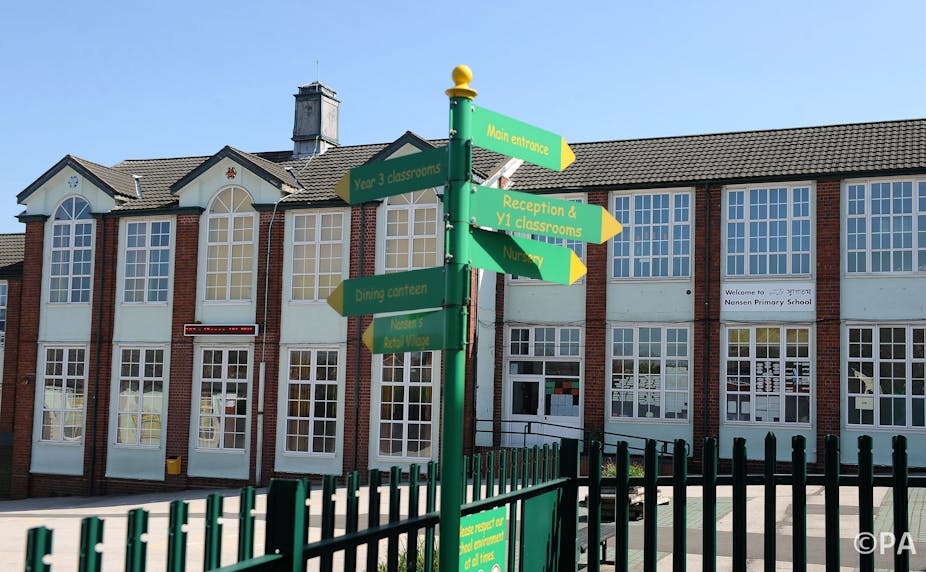If a week is a long time in politics, then the school summer holidays must have seemed like a lifetime the for governors, teachers, pupils and staff at the 21 schools at the centre of the Trojan Horse plot in Birmingham.
Allegations made in an anonymous letter – now widely thought to be a hoax – surfaced in March of a “plot” to overthrow existing teachers and governors in non-faith state schools as a means of replacing them with “Islam-friendly” individuals prepared to run the schools in accordance with conservative Islamic principles. In response, the 21 schools were subjected to what can only be described as unprecedented levels of public and political scrutiny.
While the summer holidays provided some respite – not least because the allegations have finally begun to disappear from the public gaze – the spectre of Trojan Horse will once more raise its ugly head as schools go back across Birmingham. The new academic year will see staff, pupils and parents beginning the process of dealing with the fallout from the allegations.
Impact on parents and pupils
In a handful of schools, Ofsted investigators raised important concerns about certain aspects of school governance and five were put into special measures. But given that a number of governors involved have already resigned or left their posts, addressing these very clear issues should be relatively unproblematic.
We should not overlook the fact that some of the schools concerned had been transformed from failing to outstanding under those same governors. Parents may be supportive of how the schools were being run, thereby raising the possibility of some being unhappy and even unwilling to support the changes required – especially if claims that new governors have failed to involve parents are correct. Some might also point to reports that GCSE results at two of the schools have fallen since the investigations and changes have been made.
There will also be concern among parents about the long-term impact on their children, some fearing that the allegations will detrimentally impact their future job and education opportunities. As the former Birmingham councillor Salma Yaqoob put it: “The impact of this stigma on a whole generation of the city’s Muslim students when applying to universities and jobs cannot be overstated.”
This fear of being seen to be guilty by association – of being an extremist or at least sympathetic to the goals and objectives of extremists – is a real and tangible one, something that will be as relevant to staff at the schools as the pupils.
Solutions to extremism
Over the space of a few months, the Trojan Horse allegations became conflated with the wider issue of tackling extremism. Former prime minister Tony Blair suggested the allegations in Birmingham’s schools were directly linked to the kidnapping of 200 girls by Boko Haram militants in Nigeria.
In his report anti-terror chief Peter Clarke, brought in to investigate the allegations in Birmingham on behalf of the Department for Education, said: “I have neither specifically looked for nor found any evidence of terrorism, violent extremism or radicalisation in any of the schools we examined in detail.”
But that same perceived link has again raised its ugly head in relation to the growing number of British Muslims going to fight in Syria and Iraq for Islamic State.
Focusing on the threat they might subsequently pose to Britain if and when they might decide to return, some commentators suggested that extremism in British schools is a causal factor in the decision-making of those choosing to fight in the Middle East.
The “solution” being posited by politicians and commentators alike to this growing challenge is extremely similar to what has been suggested in relation to solving the “problem” in Birmingham’s schools: the need to place a greater emphasis on the teaching of “British values” as part of the school curriculum.
‘Clear message’ to British Muslims
In spite of the lack of evidence of extremism in Birmingham’s schools, as my research has shown, many in wider society believe that there is “no smoke without fire” when it comes to Muslims and Islam. So it is almost certain that many people in Britain will believe that a culture of extremism exists within Birmingham’s schools, even though there is little to substantiate such claims.
This has a potential impact on all Britain’s Muslims, and it will further add to the weariness that is already apparent in the Birmingham community. Many of the city’s Muslims are still reeling from the impact of the now defunct Project Champion – where more than 200 “spy” cameras were placed around two of the most densely populated Muslim areas in the city. Research I did with my colleague Arshad Isakjee highlighted that the message from this is that Birmingham’s Muslims are a “suspect community”.
Trojan Horse will only reinforce this further and its shadow will be felt for some time yet. As children across the country return to school for the new academic year, many in Birmingham will be feeling just that little bit more anxious and fraught, increasingly isolated and marginalised. In doing so, the message that they do not belong – not even to the city in which they were born, grew up and continue to live – might just be the very message that the true extremists will want ordinary Muslims in Birmingham and elsewhere to hear.

